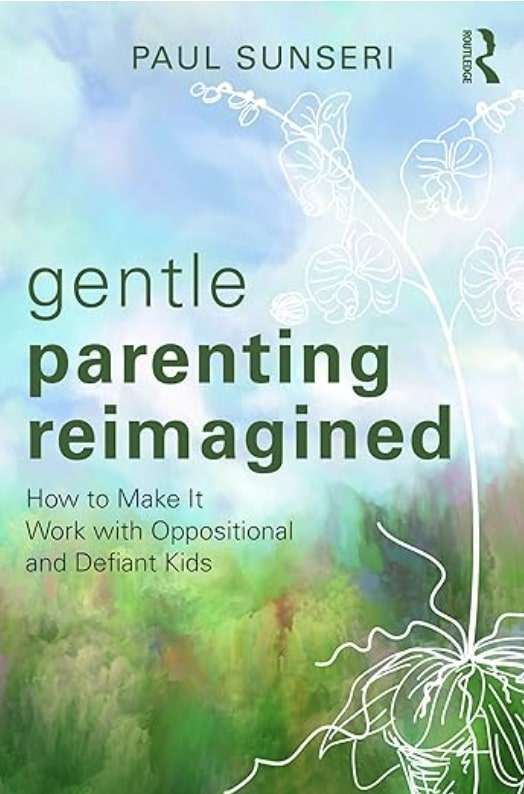The term “gentle parenting” has gained traction over the past decade, often defined by its emphasis on empathy, collaboration, and emotional connection rather than punishment or authoritarian discipline.
“Gentle parenting, in theory, is a great idea—who doesn’t want to be gentle with their kids,” Dr. Paul Sunseri, clinical psychologist told Lianne Castelino during an interview for Where Parents Talk. “But how do you do that when you’ve got a hard kid?”
A big challenge for many parents is trying to maintain emotional connection with their kids—especially when behaviour problems arise. From meltdowns and disrespect to defiance, the usual parenting tools often fall short.
Bringing more than 40 years of experience to bear, Dr. Sunseri believes it’s time to rethink our approach. In his latest book, Gentle Parenting Reimagined: How to Make It Work with Oppositional and Defiant Kids, he offers a framework for maintaining empathy and boundaries—especially with children who test both.
What Is Gentle Parenting?
More than a buzzword, gentle parenting is a philosophy built on connection, empathy, and collaboration over punishment. But as Dr. Sunseri points out, the model often falls apart when applied to children who consistently push back or act out.
“It’s great for typical kids,” says the father of four, “but what about the child who yells at their parents, curses, refuses to do homework, or who tells you ‘no’ more than ‘yes’? That’s where most parents hit a wall.”
That frustration, he says, is exactly why he wrote his book—to give parents a blueprint for responding to extreme behaviours without giving up the values of gentle parenting.
“You can be a gentle parent,” he say. “But you’re going to need a different skill set. And most of us didn’t grow up learning those skills.”
When Behaviour Meets Digital Burnout
Adding another layer of complexity, today’s kids are growing up in an always-on digital environment—and it’s taking a toll on their mental health. Dr. Sunseri calls this “the parenting challenge of the 21st century.”

“If your kid is parked in their bedroom for five hours a day, and you don’t know what they’re doing, that’s a problem,” he warns. “They’re likely online, maybe being bullied, maybe watching content that’s impacting them emotionally—and you’re not hearing about it.”
Dr. Sunseri says digital platforms are often the silent contributors to anxiety, depression, and suicidal thoughts in children and teens. “A kid at school dies by suicide, and your child hears about it through their friends or social media. That’s a lot to carry. You want them to come to you in those moments, but they won’t unless they know you’re a safe space.”
How to Be Gentle—But Not Passive
One of the biggest misconceptions about gentle parenting is that it means letting kids walk all over you. Dr. Sunseri counters that notion. “Being gentle doesn’t mean being permissive,” he says. “It means staying emotionally connected while also holding firm boundaries.”

Dr. Sunseri who is Executive Director of New Horizons Child and Family Services and architect of Intensive Family-Focused Therapy (IFFT) provides real-world strategies in his latest book, including:
-
Setting clear, consistent expectations
-
De-escalating defiant behaviour without yelling
-
Coaching kids through their emotions, not overreacting to them
-
Turning everyday conflicts into teaching moment
“If your child is oppositional, you can’t just talk your way out of it,” he says. “You need tools. It’s not about being nice—it’s about being effective and emotionally present.”
At the Heart: Emotional Safety
 Dr. Sunseri’s work is predicated on the belief that children thrive when they feel emotionally safe with their parents.
Dr. Sunseri’s work is predicated on the belief that children thrive when they feel emotionally safe with their parents.
“In a perfect world, your child turns to you when they’re distressed. They come to you and open up. But that only happens if you’ve created a space where they know they’ll be heard, not judged.”
He encourages parents to treat the parent-child relationship as their most powerful tool—not threats or rewards. “I tell parents all the time, the single best predictor of a child’s mental health is the quality of their attachment to their caregivers.”
Hope for Struggling Families
Dr. Sunseri knows what it’s like from both sides—as a clinician and father. “You don’t have to be perfect,” he says.
“You just have to be present.” He wants parents to know that even if they feel like they’re failing, it’s never too late to rebuild trust and connection. “If you’ve got a tough kid, don’t give up. You can still reach them. But it takes intention, consistency, and the right tools.”
Related links
Related articles
The Connected Parenting Approach


